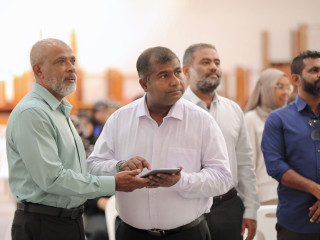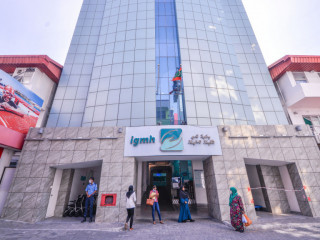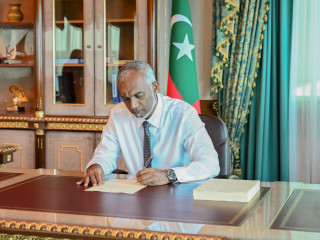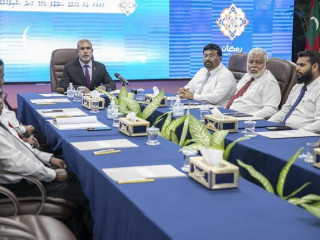An islamic preacher is suing five journalists from Mihaaru and VMedia for defamation.
Sheikh Nasrullah Mustafa has demanded MVR 7m ($453,500) in damages from each Mihaaru journalist, although he has dropped charges against one of them.
The preacher, who resigned as principal of Arabiyya School last month, is suing the journalists and VMedia for defamation following their coverage over an alleged Hajj scam that saw four people sent to Mecca without arrangements in place for their pilgrimage.
Mihaaru, citing an Islamic ministry official, reported the sheikh took money from the four but did not arrange for accommodation or an airport welcome.
The State has also charged with familial neglect, and possession of pornographic material, which had led to his resignation from state-owned Arabiyya School.
When summoned to Criminal Court for his remand hearing, the court had ruled to keep him under house arrest.
But following this, pictures had circulated on social media of him at a meeting with senior officials of the ruling. This had led some to believe Mustafa is being encouraged by the administration, which has been accused of paying off senior members of the legal system, to pursue the lawsuit.
RaajjeTV has come out to defend VMedia and the journalists for being unduly punished for reporting the truth.
RaajjeTV itself has been slapped with hefty fines last year, including an MVR 1m ($64,950) fine, by the broadcasting regulator for airing comments deemed a threat to national security.
It has recently paid off an MVR 500,000 ($32,467) fine for broadcasting remarks from an opposition MP.
The anti-defamation law passed in August 2016 holds broadcasters responsible for slanderous content aired during live events. The government-backed regulator is also authorised to suspend or cancel broadcasting licences if fines are not paid within 30 days.
The law, meant to protect a person’s name and reputation, is seen as a government tool to intimidate and crackdown on the media.













